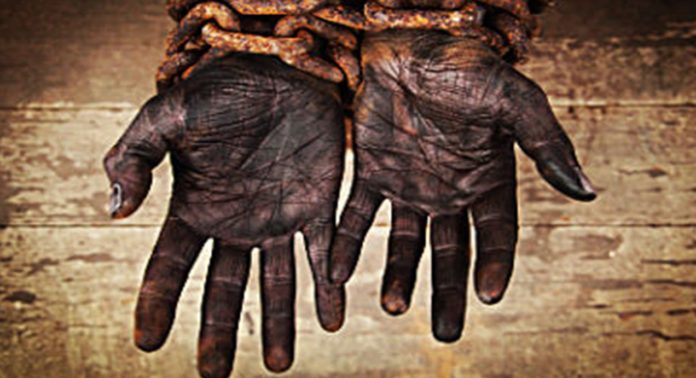
Slavery was abolished in the United States in 1865. While that seems recent to many, imagine living in a small African country like Mauritania where slavery was only outlawed in 1981.
But just like in the U.S., slavery and the mentality behind it in Mauritania did not disappear just because the law said so.space“>
According to the BBC, 1% of Mauritania’s population is still living in bondage, and like many communities throughout the world, the Black proletariats of Mauritania are typically enslaved by lighter-skinned people.
Although slavery is still widely — and quietly — practiced throughout the northern African country, two slave owners were recently jailed for their unlawful employment methods. This is a rare and atypical in Mauritania. In fact, the BBC reports that “the country has jailed more anti-slavery activists that slave owners.”
Hamoudi Ould Saleck, and his father (who passed before their trial ended) were sentenced to 20 years in prison for “reducing [a family] to slavery.” That family included young children.
Subsequently, a woman named Revea Mint Mohamed was sentenced to 10 years in prison for maintaining three slaves, one of whom had been enslaved since she was a little girl. She was 29 when Mohamed was convicted.
Though Saleck was found guilty of his crimes, anti-slavery activist Biram Ould Dah Abeid believes his trial was just for optics, calling it “a show trial by the government to stop criticism from the international community.”
Slavery was deemed illegal in Mauritania in 1981, but authorities only began to criminalize the act in 2015.
Amnesty International approximates that 43,000 people were still living in slavery at the time of Saleck and Mohamed’s convictions, and claims Mauritania’s court system has received 47 cases for investigation involving 53 suspects.
Clearly, slavery is not just a subject for the history books. It is an active and on-going issue in many places around the world.











More Stories
Tennessee politicians strip historically Black university of its board – The Associated Press
Black College Students Receive Racist “Pick Cotton” Texts – Vibe
How Asha Abdul-Mujeeb, a Black digital archivist, is preserving HBCU history – Reckon